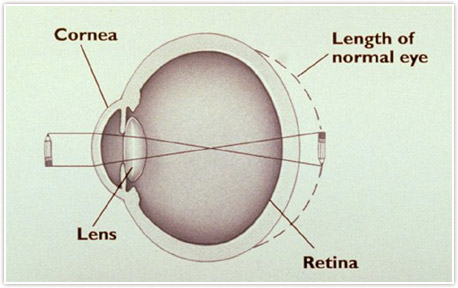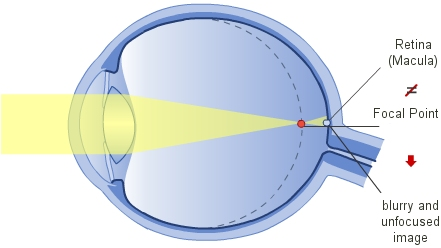
During a basic eye examination, your doctor may diagnose you with farsightedness, a vision condition that causes trouble reading close-up items. The cause of farsightedness is unclear, but it is highly likely that your parents were farsighted, which is a risk factor. If your parents were farsighted, you are likely to develop the condition too, and it is difficult to correct unless you see an eye doctor right away. However, with proper management and contact lenses, you can dramatically improve your vision.
People who are farsighted have an eye that does not correctly refract light. This causes an incomplete image to form on the retina, which results in blurred vision. The condition is often inherited, and you may not be aware that you have it until you experience visual problems later on. Because of this, it is important to get diagnosed as early as possible. You can do this by visiting your eye doctor and asking about the symptoms.
Most children are born farsighted, and fewer than four percent of children are farsighted by the time they reach adulthood. Despite being unable to see clearly at a young age, farsighted children are likely to start seeing clearly before their parents do. In fact, many parents have never noticed their child’s farsightedness, and in some cases, the condition is not apparent until later. During this time, the other parts of the visual system compensate for the condition, and your child will grow out of it in time. In the meantime, the condition will be permanent, and you will be able to enjoy clear vision at a distance, while your near-sightedness may cause strabismus or lazy eye.
There are many ways to treat farsightedness. In some cases, surgery may be the only way to cure it completely. Some cases can be corrected by reshaping the cornea and implanting a lens, but this option is only available for extreme cases. Most people with farsightedness are able to achieve excellent vision with contact lenses and glasses, and surgery is only an option for extreme cases of the condition. There are also many ways to prevent it from getting worse.
There are many reasons for farsightedness. One of them is heredity. Genetics and heredity are the main factors, but the disease can develop without any medical help. In some cases, the condition is temporary and may even improve on its own. The site eronexofficial.com

recommends that if you are farsighted, you should wear prescription glasses and avoid bright sunlight. You should also take care of your eyes. Make sure you use suitable sunglasses to protect your eyes.
A basic eye examination will diagnose your farsightedness. The optometrist will use a phoropter and a retinoscope to measure the amount of light reflected from the retina. This will help your doctor determine which prescription you need for vision correction. You should also wear sunglasses to protect your eyes from the sun’s harmful ultraviolet rays. In addition, you should also look at something far away every 20 minutes. If you suffer from farsightedness, you may find that it returns after a few years.
If you are experiencing symptoms of farsightedness, you should see an eye doctor. This will determine the severity of the condition and recommend options for vision correction. Regardless of your age, it is important to get your dilated eyes examined every one to two years to prevent the condition from getting worse. In addition to regular visits to your eye doctor, you should also get an eye exam every couple of years. You should also be aware of and aware of the risk factors associated with this condition.
The best way to prevent and correct farsightedness is to have a dilated eye exam every year. Your healthcare provider will be able to determine your current level of farsightedness and provide you with the best treatment options. You should also have a dilated eye exam every two years if you are over 40 years old. These examinations are important to prevent the development of other eye diseases and identify symptoms of farsightedness.